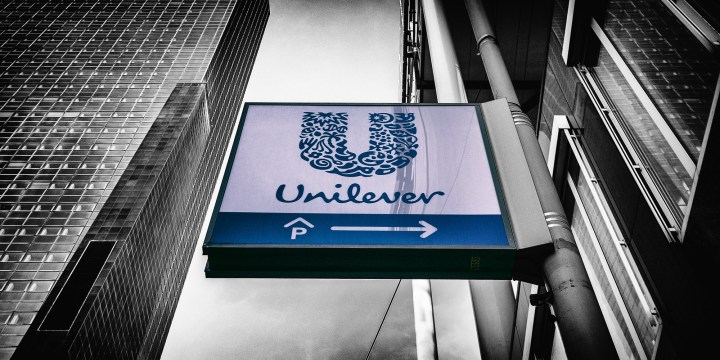PENALTY WITHOUT LIABILITY
Competition Commission welcomes tribunal’s R16m Unilever fine; SMEs and public schools the big winners

The British-based fast-moving consumer goods multinational has been fined R16-million, but won’t admit liability even though its co-accused had already admitted to collusion in 2016.
The Competition Commission has welcomed the Competition Tribunal’s fine imposed on Unilever, saying SMEs and public schools are the big winners in the agreement between the commission and the multinational consumer packaged goods company.
On Monday, the Competition Tribunal revealed that Unilever had agreed to pay an administrative penalty of R16-million, without admitting liability.
The fast-moving consumer goods giant will set up an enterprise and supplier development fund worth R40-million to offer interest-free business loans – including startup capital – to qualifying black-owned entities in the manufacturing, logistics, and wholesale industries, provided they meet Unilever’s credit and selection criteria.
Unilever has also committed to increasing local sourcing of products and services by a minimum of R340-million over a four-year period and to donate hygiene, disinfectant and oral care products worth R3-million to 18,780 public schools for the next five years.
Unilever, the producer of Dove soap, Hellmann’s mayonnaise, Marmite and Ben & Jerry’s, has a market cap of €98.4-billion. In June this year, its quarterly results reflected revenue of €15.3-billion.
The matter brings to an end a long drawn-out fight between the commission, Unilever and Sime Darby Hudson & Knight.
Sime Darby is a South African refinery that produces pastry fats, industrial margarines, shortening and frying oils.
It traced its origins to a British marketing company set up in 1946 by John Knight, who owned a soap manufacturing company, and RS Hudson of Hudson’s Soaps.
In the early 1950s, Unilever ran cash-on-delivery trucks from their operations in Cape Town, Durban and Boksburg, selling cooking oil, white margarine, bulk detergents, filled bar soap and small tablets of Lux soap to the non-retail market.
Hudson & Knight was integrated into Unilever in 1964.
In 2004, it was acquired by Malaysian company Golden Hope Berhad from UBR (a Unilever joint venture), along with brands such as Crispa, Pastrex, Holsum and Mastercraft, and renamed Sime Darby Oils.
Sime Darby Hudson & Knight started their own packing operation in Springs to pack Holsum and shortening, which was previously packed by Unilever.
The companies were said to have had an agreement in place precluding Sime Darby from supplying certain products in particular pack sizes and formats to specific customer channels.
The commission accused Unilever and Sime Darby of contravening section 4(1)(b)(ii) of the Competition Act by entering into a sales agreement which included a non-compete clause restricting supply of local edible fats and oils industry between 2004 and 2013.
Sime Darby and the commission reached a settlement in July 2016, but Unilever at first defended the allegations, then negotiated a settlement with the commission.
In 2017, the commission took legal action against both Unilever and Sime Darby, alleging market division practices.
Competition Commissioner Doris Tshepe hailed the tribunal’s decision, saying it will go a long way in fostering healthy competition and driving positive change in South Africa’s business landscape.
Unilever exited the spreads business in September 2017, when it announced it would acquire Remgro’s interest in Unilever SA in exchange for the Unilever SA spreads business plus a cash payout.
In the deal, Unilever acquired Remgro’s 25.75% shareholding in Unilever SA in exchange for the Unilever Spreads business in southern Africa, as well as a cash amount of R4.9-billion. The transaction was valued at R11.9-billion. DM



















 Become an Insider
Become an Insider
Ergo the sad absence of Hellmann’s Mayonnaise in recent years…